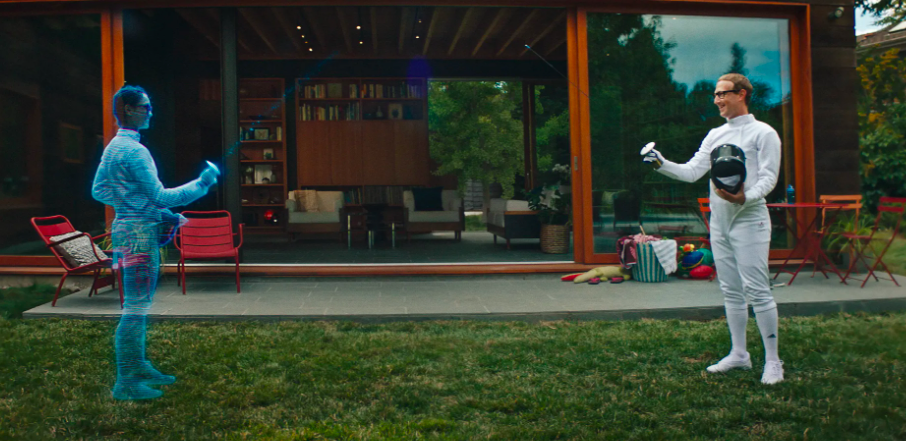Imagine waking up in your dream location, the last stop on a trip around the world. You hear muffled conversation drifting up from the street, and the wind blowing. You walk outside and see sunshine, a city, park, beach or anything else. You stand in the shadow of the Eiffel tower in Paris or maybe the Pyramids in Egypt. Yet, in reality, you are sitting in bed, wearing pajamas and a virtual reality headset, immersed in the experience of the metaverse.
The metaverse is a world in which virtual reality, augmented reality (technology that projects a computerized image on the world one already sees), and video are combined to form a 3D world where users can experience lifelike events such as traveling around the world without leaving home. Experiences in this virtual world will be made to feel real through technologies that provide the user with the senses of sight, hearing and touch.
The metaverse is predicted to be fully functional in five to ten years, and is expected to become a world that will be interwoven into reality, similar to the way digital communication and the internet already have been. Ingrid Sabogal, an Ethics and Tech Coordinator at Fieldston states that, “Virtual and augmented reality are technologies that have fundamentally changed the way in which we interact with one another. In my opinion, the metaverse would be yet another layer to this already complicated puzzle.”
In fact, many features of the metaverse have been around for a while. For example, ultra-fast broadband speeds, virtual reality headsets, alongside video games such as Fortnite, Minecraft, Animal Crossings and Roblox already capture many aspects of the metaverse. These video games exist as virtual spaces where users, represented by an avatar, can interact with one another.
The metaverse will revolutionize and mirror many industries. For instance, there will be a fresh new real estate market, containing fantastical destinations, as well as locations based on reality. “Super World,” a virtual realm (where users can collect, buy and sell virtual property), has created representations of every plot of land on earth, adding up to 64.8 billion plots of land. A virtual depiction of your home is most likely available for purchase, as are some famous landmarks such as the Taj Mahal.
Music is another industry that has already begun to benefit from these new evolving technologies. Artists such as Justin Bieber, the Weeknd and Ariana Grande have already performed successful virtual concerts.
However, one of the most impactful uses of this new technology will be in healthcare. While telehealth has gained popularity during the pandemic, virtual and augmented reality will open up many more opportunities. Microsoft Mesh has created hololens technology, which allows doctors to provide “hands-on” medical care without being in the same room as the patient. Additionally, Meta (formerly known as Facebook) is developing haptic glove technology, which will give users the sense of touch in the metaverse, and will also be used to enhance healthcare. The army also has soldiers using augmented reality Hololens 2 headsets to perfect their battle skills in various situations.
While it is clear this is the direction in which technology is headed, despite all the benefits, there will also be downsides. Since the metaverse exists as an alternative world, it could cause people to lose touch with reality, and also use it as an escape from reality. Additionally, the metaverse is, in many ways, a more complex version of the internet. Due to this, many of the problems caused by the internet will be carried to the metaverse, and may be intensified.
Sabogal spoke on this saying that “we have already seen the many ways in which the internet has been detrimental to our society–harassment, hacking, hate, speech, etc. The metaverse would be an exacerbation to those detriments moving us further from any accountability when it comes to data privacy, rights, and security and misinformation.” Sabogal goes on to highlight that there are also, “a lot of great possibilities when it comes to this evolving technology and a lot of great ideas and advancements could come from them. However, it will be important to mitigate the harms that could arise from this proposed virtual world.”
Someday, in the not too distant future, we will most likely find ourselves integrating the metaverse into our daily lives and benefiting from the technological advancements this virtual world will provide. Our challenge will be to take off our goggles once in a while and experience life so the metaverse does not become our universe.






